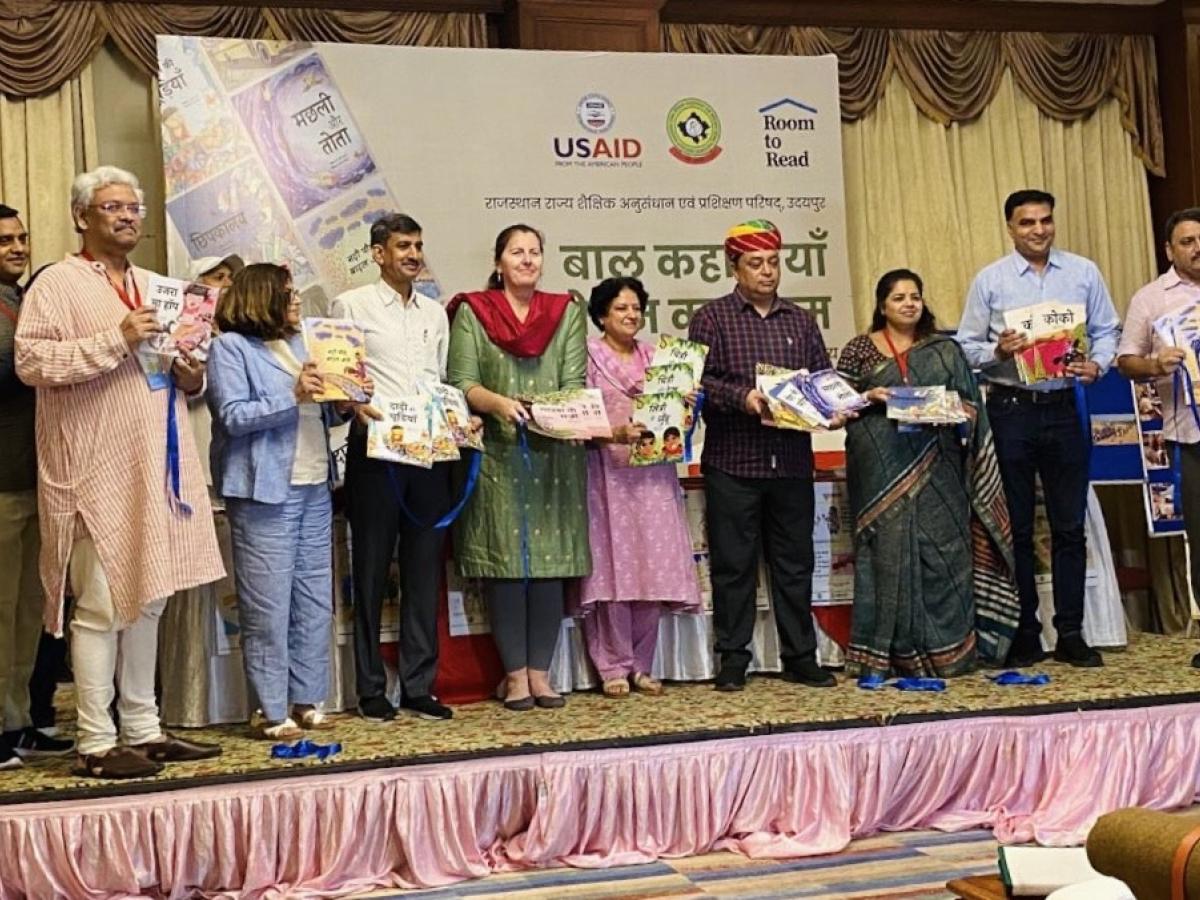For Immediate Release
Press Release
Jaipur, Rajasthan: The United States Agency for International Development (USAID) and Room to Read India partnered with the Rajasthan State Council of Educational Research and Training (SCERT) to publish 27 children’s storybooks, which will promote reading skills and reading habits among children. These age-appropriate, high-quality storybooks - nine books each in Hindi, Wagdi, and Garasiya languages – were produced in collaboration with primary school teachers and will be distributed in schools across Rajasthan by the SCERT.
The books were formally launched at an event today in Jaipur by Dr. Bulaki Das Kalla, the Honourable Minister for Department of Education (Primary and Secondary), Department of Sanskrit Education, Art, Literature, Culture and Archaeology, and Primary Education Department under Panchayati Raj, Government of Rajasthan.
Alexandria Huerta, Deputy Mission Director, USAID, said, “Education is a foundational driver of development outcomes. Children who are prepared with the skills they need for life and work can drive progress for themselves, their families, their communities, and their countries. USAID is happy to collaborate with the Rajasthan government and Room to Read India to improve reading outcomes among primary grade children in the state.”
Simmi Sikka, Associate Director, Quality Reading Material, Room to Read India, said, "Room to Read has long been creating age-appropriate storybooks for children, in regional languages. Through USAID’s support, we are now also developing quality storybooks for young readers in languages native to Rajasthan, which will help address multilingualism.
The books were produced under USAID’s Scaling-up Early Reading Intervention (SERI) project, which is aligned with the National Education Policy (NEP) and National Initiative for Proficiency in Reading with Understanding and Numeracy or the NIPUN Bharat Mission. The project, implemented by Room to Read, has showcased substantial reading improvement among early-grade students at scale and is currently working towards institutionalizing the principles and practices within government systems. To further this cause, the SERI team is actively engaging in critical areas such as curriculum development, teaching materials development, teacher training, assessment, capacity building, children's literature development, and community engagement.

